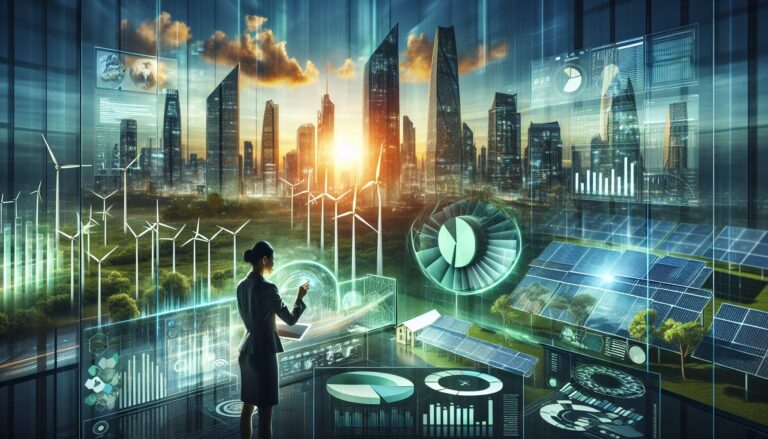As environmental concerns continue to take center stage, the business sector is experiencing a transformative shift towards sustainability. The convergence of various environmental phenomena has spurred a wave of innovation and conscious decision-making that is shaping the world of business today. From climate change to resource scarcity, these trends are not only redefining the corporate landscape but also hold the potential to dictate our future.
Understanding the Environmental Tapestry
Climate change, one of the most pressing global challenges, has prompted businesses to reimagine their operations. Rising temperatures, extreme weather events, and shifting weather patterns have profound implications for various industries. In response, businesses are increasingly investing in renewable energy sources, implementing energy-efficient practices, and reducing their carbon footprint.
Another significant trend is the depletion of natural resources. Rapid industrialization and population growth have placed immense pressure on our finite resources, urging businesses to adopt sustainable practices to ensure their long-term viability. Circular economy models, zero-waste initiatives, and responsible sourcing have become key strategies for companies seeking to minimize their impact on the environment.
Moreover, the rise of conscious consumerism has had a transformative effect on businesses. With customers demanding greener products and services, companies are under pressure to adopt sustainable practices throughout their value chains. This shift has resulted in the emergence of eco-friendly innovations, such as biodegradable packaging, renewable materials, and ethical sourcing.
The Implications for the Future
The increasing emphasis on sustainable business practices carries significant implications for the future. As more companies embrace sustainability, they not only contribute to mitigating climate change but also gain a competitive advantage. Consumers are increasingly making purchase decisions based on a company’s environmental credentials, and businesses that fail to align with this trend risk losing their market share.
Furthermore, governments around the world are enacting stricter regulations to combat environmental challenges. As legislation evolves, companies that have already adopted sustainable practices will be better positioned to adapt, while those that lag behind may face significant disruptions. Businesses must stay ahead of the regulatory curve and proactively embrace sustainable strategies to navigate these changing landscapes.
Ultimately, the rise of sustainable business presents a unique opportunity for innovation and collaboration. Companies that prioritize sustainability can tap into a growing market for green products and services, fostering economic growth while also benefiting the planet. Collaborations between businesses, governments, and NGOs can lead to greater collective action, driving systemic change and creating a more sustainable future.
In conclusion, the environmental phenomena shaping our world today are driving businesses towards a more sustainable future. From climate change to resource scarcity, these trends have far-reaching implications that span industries and geographies. Embracing sustainability is no longer an option but a necessity for businesses seeking to thrive in a rapidly changing world. By embracing innovative strategies and proactive collaborations, companies can not only mitigate environmental challenges but also create a brighter, greener future for all.

